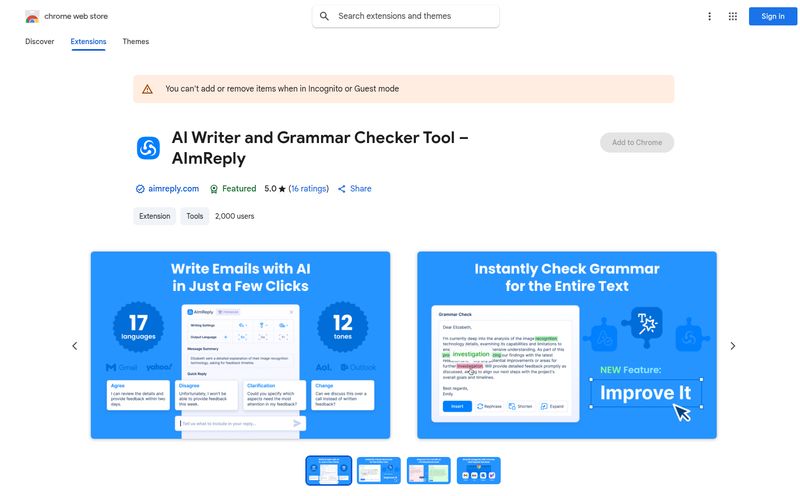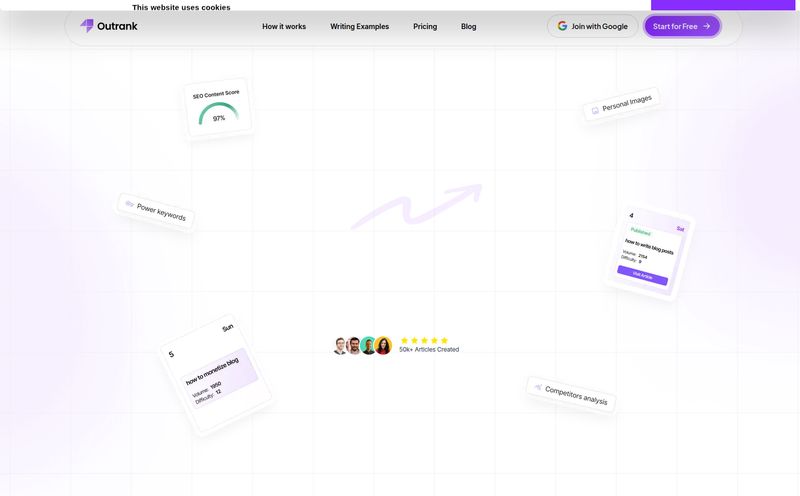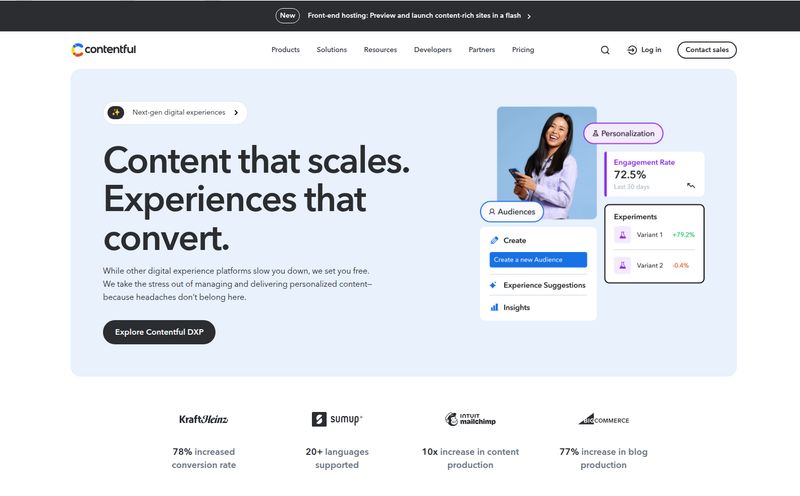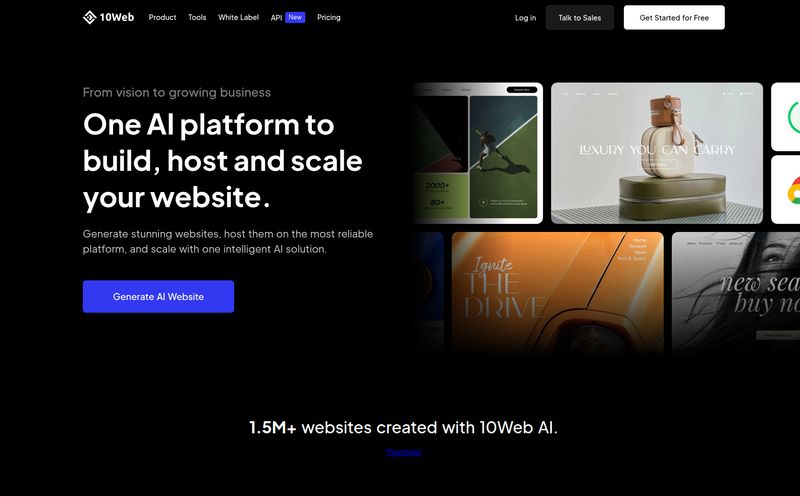I’ve been in the SEO and traffic generation game for a long, long time. I’ve seen trends come and go, from the wild west of keyword stuffing to the sophisticated dance of semantic search we do today. And if there’s one thing that’s never changed, it’s this: content is a grind. Especially e-commerce content.
Let's be honest. Writing product descriptions can be a total drag. It's that relentless task of trying to find a hundred different ways to say 'This handcrafted leather wallet is durable and stylish' without sounding like a bored robot. You know you need good, keyword-rich copy for Google to notice you, but you also have a business to run. Who has the time?
Well, I recently stumbled upon a tool that’s been making some noise in the Shopify community, and it piqued my interest. It’s called Open Text AI, and it claims to take that content grind off your plate. But does it actually work? Or is it just another shiny object in the ever-growing pile of marketing tech? Let’s get into it.
So, What Exactly is Open Text AI?
Think of Open Text AI as a junior copywriter who’s mainlined the entire internet, ready to churn out drafts for you 24/7. It's a Shopify plugin (and it works with WooCommerce too, which is a nice touch) that uses advanced AI—the same kind of stuff powering tools like ChatGPT—to write and optimize your product titles and descriptions. The whole point is to make your products more visible in search results, more appealing to customers, and ultimately, to get you more sales without you having to write every. single. word. yourself.
It’s not about just spitting out generic text. The idea is to create descriptions that are not only SEO-friendly but also sound human and align with your brand's voice. A pretty tall order for an app, right?
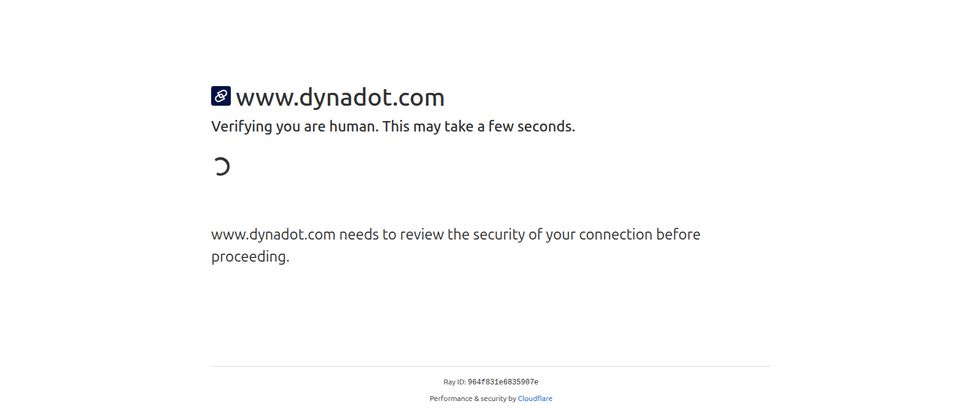
Visit Open Text AI
The Features That Actually Matter
A lot of apps throw a million features at you, but only a few really move the needle. From my perspective, here’s what stands out with Open Text AI.
AI-Powered Text Optimization
This is the core of the whole thing. You feed it some basic information about your product, and it generates titles and descriptions for you. This isn't just word salad, though. The AI is trained on vast amounts of e-commerce data, so it has a pretty good idea of what kind of language converts browsers into buyers. It's designed to hit those persuasive notes that can make a difference between a click and a bounce.
Keyword Analysis for the Win
Now this part got my SEO spidey-senses tingling. The plugin has a built-in keyword analysis feature. This is huge. I remember back in the day, we had to do all this keyword research manually with spreadsheets that would make your eyes bleed. This tool analyzes your product and suggests relevant keywords to include in your copy. It helps you target what people are actually searching for, not just what you think they're searching for. It’s like having a little SEO consultant whispering in your ear for each product you list.
Setting the Right Tone
One of my biggest gripes with AI writers is that they can sound so… generic. Your brand might be fun and quirky, or luxurious and sophisticated. A one-size-fits-all description just won't cut it. Open Text AI includes a tone customization feature, which I think is brilliant. You can tell it to write in a 'Playful,' 'Professional,' 'Witty,' or 'Formal' tone, among others. This helps maintain brand consistency, which is super important for building a loyal customer base. It's not perfect, but it's a massive step in the right direction.
Painless Integration
If you're not a tech wizard, the words 'plugin' and 'integration' can be a little scary. The team behind this seems to get that. It’s built to plug directly into Shopify and WooCommerce with minimal fuss. From what I’ve seen, the interface is clean and it slots right into your existing workflow, so you’re not having to learn a whole new, complicated system. That’s a big plus for busy store owners.
The Real-World Benefits (Why I'm Genuinely Intrigued)
Features are nice, but what results can you actually expect? In my experience, focusing on product-level SEO is one of the most underrated growth strategies for e-commerce.
First off, the time savings are obvious. The hours you’d spend agonizing over copy can now be spent on marketing, customer service, or product sourcing. That alone could be worth the price of admission. But it goes deeper. By improving your on-page SEO for each product, you increase your chances of ranking on Google for long-tail keywords. Someone searching for a “men’s waterproof hiking boot size 11” is a much hotter lead than someone just browsing for “shoes.” Better descriptions, better rankings, more qualified traffic. It’s a classic SEO formula.
And let's not forget the customer experience. A clear, compelling, and informative product description builds trust. It answers questions before they’re even asked, reducing purchase anxiety and potentially lowering your return rate. Plus, with the ability to generate content in multiple languages, you can start testing international markets much more easily. That’s a growth lever that many small stores are afraid to pull because of the language barrier.
Let’s Be Real: The Not-So-Perfect Parts
Okay, I'm an SEO, which means I'm a professional skeptic. No tool is a magic bullet, and Open Text AI is no exception. My main reservation is the one that applies to all AI content tools: it still needs a human touch.
You can't just set it and forget it. The AI is smart, but it doesn't know your brand's soul. It doesn't know that inside joke you share with your customers or the specific origin story of a particular product. I’d always recommend using the AI-generated text as a fantastic first draft. Read it, tweak it, inject your own personality into it. Make sure its factually accurate. The AI's effectiveness is also tied directly to the quality of its programming and data. If it has a bad day, it might give you something a bit off. Think of it as an incredibly productive assistant, not a replacement for your own brain.
What’s the Damage? A Look at Pricing
This is the part of the review where I usually break down the pricing tiers, but information on Open Text AI's pricing model seems to be a bit scarce at the moment. Often, apps like this will have a tiered structure based on the number of products you want to optimize or the number of words you generate per month. Some might offer a free trial or a freemium plan to let you get your feet wet.
My best advice? Head over to their page on the Shopify App Store. That's where you'll find the most up-to-date and accurate pricing information directly from the source.
Frequently Asked Questions
Is Open Text AI hard to set up?
No, it's designed for easy integration. As a Shopify or WooCommerce plugin, it installs directly into your store's dashboard. Most users should be able to get it up and running in just a few clicks without needing any coding knowledge.
Can it really replace a human copywriter?
In my opinion, no. It's an incredibly powerful assistant that can handle about 80-90% of the work. It's perfect for generating strong first drafts, overcoming writer's block, and handling bulk descriptions. But for true brand voice and factual accuracy, a final human review and edit is always a good idea.
Does it work for languages other than English?
Yes, one of its stated benefits is the ability to generate and optimize content in multiple languages. This is a significant advantage for stores looking to sell internationally.
Is there a free trial for Open Text AI?
Many apps on the Shopify App Store offer a free trial period or a limited free plan. You'll need to check their official app page for the most current offers and details.
How does it find the right keywords?
It uses its AI models to analyze your product's title, type, and any initial details you provide. It then compares this against a massive database of search queries and e-commerce trends to suggest keywords that have high purchase intent and relevance to your item.
Is Open Text AI just for Shopify?
While it’s very popular on Shopify, the information provided states that it also offers easy integration for WooCommerce stores, which covers a huge portion of the e-commerce market.
So, What's the Final Verdict?
After looking it all over, I’m genuinely optimistic about a tool like Open Text AI. For a solo entrepreneur, a small business, or even a marketing manager at a larger company who's stretched thin, it could be a massive productivity booster. It correctly targets a huge pain point in the e-commerce world—the endless need for good, optimized content.
It's not a set-it-and-forget-it solution that will magically triple your profits overnight. Nothing is. But if you use it smartly—as a powerful assistant to speed up your workflow and as a guide to uncover better keywords—I think it could absolutely give you a competitive edge. It can free you up to focus on the bigger picture, and in this business, that’s priceless.
References and Sources
- Open Text AI on the Shopify App Store
- Moz's Beginner's Guide to Keyword Research (For context on the importance of keyword analysis)
- Shopify's Guide to Writing Product Descriptions that Sell
